Introduction
The story goes like this.
I am sat with my friend in a sun-lit room, holding a warm mug of coffee in my right hand and gesticulating with my left as I discuss with him the nature of science. I am a physicist by training who converted to Islam a few years ago, somewhat to the surprise of my English family and friends. Clearly, the conversation is somewhat loaded, and it is clear from the fervour in our voices that we don’t agree. Fortunately, the warm beverages we are sipping are keeping us in a mellow mood. His argument is as follows;
“Alex, don’t you see how clear it is? Science and religion are not compatible. A true scientist cannot be a religious person. There has always been a conflict between science and religion. If science had separated itself from religion sooner, we would be going to a terraformed Mars for our summer holidays instead of the southern beaches of France.”
I sit looking down for a moment, thinking about how I can phrase things to make my points clearer. Slowly my mind begins to daydream. I am thinking about how much more convenient it would be to write all of this down. So, after giving my response to him, (a far more limited version of what is to follow), I took a final gulp of frothy coffee, and we said our goodbyes.
This wasn’t the first encounter of this kind I’ve had and it won’t be the last. It reflects a commonly held view throughout much of western society today. From beauty products to relationships, from health to sports, science is used as an authority to support views held by interests in all areas of life. While this is not news, it does appear in the news – a lot! Science is the authority, all else is secondary.
When most of society implicitly accepts such claims, their acceptance is not based on any scientific expertise. As with most beliefs, our belief in the rightness of science is primarily held on the basis of trust in those deemed knowledgeable. The unfortunate downside to this is that some beliefs deemed ‘scientific’ go unquestioned.
Indeed, one of these claims is that religion is backwards, and has held back society. We are taught, sometimes implicitly, sometimes explicitly, that religion is anti-science, and intrinsically regressive. The sooner we can free ourselves from the shackles of religion, the better it will be.
I feel that such a position is, ironically, profoundly unevidenced and uninformed. But I wanted to do more than make claims from reason. I wanted to show how we got to this state of affairs in our society. So after that coffee, I went away and researched the history of this topic along with the Rational Religion team. The result is the article you’re about to read, which gives a historical analysis of why the rise of modern science was at the expense of religion.
Was it worth the trouble? Yes. This is an issue that is too important not to bring to light. For it may be that you, dear reader, are someone that wishes to explore religion more, but feel like society would ridicule you for it. Perhaps you think it would go too much against the authority of science. “Maybe I really don’t have a body but am a body?” you ask yourself, embracing the materialist view.
To address this, we will jump back in time to see how science and religion interacted in the past, where the clashes are, where the continuity is, and what happened to get to where we are now. We will show that the metaphors of conflict and harmony between science and religion can both apply, depending on the religions and beliefs to which we subject them. We hope to show that there is a difference between science being compatible with theism broadly, even dependent on theistic ideas, but that that its findings can conflict with the specifics of certain religions. Indeed, we hope to show that it was primarily a conflict with Christian scripture, rather than religion as a whole, that brought us to the modern day.
Science & Religion: Conflict or Harmony?
By Alex Borthwick & Umar Nasser
A Journey Through Modern History
Religious Scientists
First, let us centre ourselves in the present.
What is the current state of play? Towards the end of the 2010’s, Pew Research Centre explored the religious beliefs of American scientists. They made a few important discoveries.
Firstly, there is undoubtedly less inclination towards things divine within the American scientific community, as compared to the general population. Just 51% of scientists believed in a Supernatural Power of some kind, compared to 95% of the general public in 2009. This is more the case when examining natural scientists in elite university positions, according to research data published by Professor Ecklund and Professor Scheitle in Religion vs. Science: What Religious People Really Think (2018). They further demonstrate, however, that highly educated people in the US tend to be as religious as the general population. Scientists, however, appear to be different, with the subject itself seeming to be a secularising force, especially in elite academic roles.
The same data shows however that around half of American scientists do believe in some kind of Higher Power. Thus, for many American scientists, God and religion are not put on a dusty shelf to be forgotten. The data will have changed since then, but the general argument will still hold – there are many scientists in today’s age that still believe in God, still believe in religion, and see value in spirituality. In fact, 89.5% of the Nobel Prize Winners from 1901-2000 were religious, with only 10.5% being atheists and agnostics (100 Years of Nobel Prizes, Baruch Aba Shalev, pg. 57).
Abdus Salam (1926-1996) was one example of an outspoken believer in God who made huge advances to quantum physics. Werner Heisenberg (1901-1976) was another quantum pioneer who held belief in God, and Francis Collins, who led the Human Genome Project, is a prominent living figure.
Theistic Pioneers of Modern Science
This is not a new phenomenon. The western scientific revolution was pioneered by ardent theists. One such luminary was none other than Isaac Newton. His numerous and revolutionary scientific insights did not, in his mind, detract from the need for a Creator. According to him, the laws of gravity, which he himself formulated, should not be used to advance atheistic narratives. He wrote:
“This most elegant system of the sun, planets, and comets could not have arisen without the design and dominion of an intelligent and powerful being…. He rules all things, not as the world soul but as the Lord of all. And because of his dominion he is called Lord God…. The supreme God is an eternal, infinite, and absolutely perfect being…”
Sir Isaac Newton, General Scholium of The Principia: The Authoritative Translation.
Newton was in fact, extraordinarily religious. He wrote more on Biblical exegesis than he did on mathematics, and even avoided demands on his scientific work so he could better concentrate on his religious work. (See the “Freemantle Lectures” by Frank E. Manuel and “Priest of Nature” by Rob Illife). He was essentially a Unitarian Christian, believed that the Trinity was an abomination, and that science only ever progressed in the absence of polytheism.
Atheism was another victim of his ire, saying:
“Opposition to godliness is atheism in profession and idolatry in practice. Atheism is so senseless and odious to mankind that it never had many professors.”
Another such figure from the biological world was none other than Alfred Russell Wallace, the co-founder of the modern theory of evolution with Charles Darwin. Soon after their work together on the topic, Wallace found himself increasingly at odds with Darwin.
While Darwin became more and more convinced that evolution could happen purely through the operation of blind natural forces, Wallace became progressively convinced that evolution was guided by One God, again rejecting Christianity’s Trinity. Not only this, but he came to the conclusion that the entire universe cried out for a Creator and Divine Mind to guide it. One of the most pre-eminent scientists of his day, he wrote towards the end of his life:
“Is there guidance and control, or is everything the result of chance? Are we solitary in the cosmos, and without meaning to the rest of the universe; or are we one in ‘a stair of creatures,’ a hierarchy of beings? Now, you may approach this matter along the metaphysical path, or, as a man of exact science, by observation of the physical globe and reflection upon visible and tangible objects. My contribution is made as a man of science, as a naturalist, as a man who studies his surroundings to see where he is. And the conclusion I reach in my book is this: That everywhere, not here and there, but everywhere, and in the very smallest operations of nature to which human observation has penetrated, there is Purpose and a continual Guidance and Control.”
New Thoughts on Evolution, by Harold Begbie with Alfred Russell Wallace, The Daily Chronicle (1910), as reprinted in Alfred Russell Wallace: A Rediscovered Life, by Michael Flannery (2011).
Newton and Wallace were hardly alone. Copernicus, Kepler, Galileo, Mendel, Lemaitre, and so many more, were also deeply religious individuals, Christians of various persuasions.

The mathematical beauty of the universe has long impressed scientific pioneers.
Theism as the Foundation of Modern Science
In reality, the western scientific revolution was grounded in theistic ideas. Stephen C. Meyer, an advocate of Intelligent Design theory who received his PhD from the University of Cambridge in the Philosophy of Science, describes this in Chapter 2 of his stellar recent work “The Return of the God Hypothesis.”
Meyer describes three key religious metaphors as shaping early western scientific thought. The first is the ‘book of nature’, the idea that the universe reflects God’s mind and attributes in the same way that religious scripture does. Both God’s Work and His Word bear the impress of their author. Not only this, but it indicates that the universe is intelligible to human minds by design:
“Viewing the natural world as a book that reveals the character and nature of God provided a theological inspiration for the formal study of the natural world. It also reinforced conviction in the intelligibility of nature, because it implied that the divine author not only speaks through the book of nature, but that men and women made in his image and endowed with his rationality were equipped to read and understand it.”
Stephen C. Meyer, pg. 42, Return of the God Hypothesis (2021)
The second key metaphor was that of the ‘clockwork nature’ of the universe, here employed to convey that the universe that it was designed as intricately and delicately as a timepiece. The metaphor also carried with it some deistic impulses too, where God set up the universe and simply left it running, much to the annoyance of some early scientific pioneers.
The third was the idea of the ‘Laws’ of Nature, with God as the Divine Legislator who issues the edicts that govern the universe. This is a far cry from the idea of today that the Laws of Nature are somehow autonomous, running the universe by themselves.
Religious thought was clearly formative to early western science. It was this shared outlook by the early European scientists that contributed to the growth of organised science. This also became evident institutionally too. Without devout Christians, the Royal Society – the first organised scientific society of Europe – would probably not have come about; leaving the cutting-edge research of the time on the cutting floor.
Wisdom of God: By John Ray (1692)
This Royal Society, the United Kingdom’s national academy of sciences, was granted a Royal Charter in 1662 and was the Kingdom’s first national scientific institution. Despite its respectable position today, when it was first founded it was not admired as much as one might think. Charles II, who granted the Royal Charter, referred to the Fellows of the Society as ‘my ferrets’.
For many, the science that they carried out was viewed with some suspicion. But at this time, science and religion had not yet emerged as rivals. Fast forward to the present day, and this is the common perspective, as evidenced by surveys and widespread experience. So just how did this rift emerge? Is it inherent in science and religion to clash, or was this simply the product of the prevailing circumstances?
Natural Philosophy in Ancient History
To answer this, we must look back to antiquity. Science as we know it did not really exist then. Nick Spencer, the eminent historian of the Theos think-tank, tells us:
“[T]o claim that science and religion were at war in the first millennium – or even much of the second – would be like claiming that Israel and Egypt were at war in 1600; the entities, such as we understand them, simply did not exist then.”
Nick Spencer, Chapter 7, Evolution of the West (2016)
Instead, what we had was natural philosophy – philosophical conclusions on the nature of the world based upon reason, logic, and a sprinkling of empirical evidence.
The Church was often hostile to this because many of those conclusions were anti-Biblical. And in the presence of God’s Word, some simply found the whole exercise irrelevant. Tertullian, a Carthaginian Christian author from the second century, stated that:
“[W]e have no need for curiosity since Jesus Christ, nor for enquiry since the Evangelist…What has Athens to do with Jerusalem, or the academy with the Church?’”
Nick Spencer, Ibid, pg. 100
The Greek Philosophy being dismissed was primarily Aristotelian, and in Aristotle’s idiosyncratic philosophy the Church found many heresies. Even then, thinkers like Aquinas adapted it for the Church’s ends, and large elements became part and parcel of clerical education. As James Hannam writes:
“It is hard to imagine how any philosophy at all would have taken place if the Church-sponsored universities had not provided a home for it…. They were free to speculate as much as they pleased as long as they avoided religious controversy.”
Chapter 12, ‘God’s Philosophers: How the Medieval World Laid the Foundations of Modern Science (2009)
So the idea that the Church’s relationship to natural philosophy was black and white, is clearly wrong. They supported an adapted version of it, one that suited their ends. Regardless, it is true that in the Middle Ages, philosophical and scientific progress was sluggish in the West.
The Middle East, however, told a different story. The Muslim Arabs, inspired to seek knowledge by the Quran, turned to Greek philosophy and ran with it. Being the centre of the world of knowledge for many centuries, they developed Greek theories, challenged many, and supplanted some of them for good. Luminaries such as Ibn-Al-Haytham made empirical investigation a way of life, and broke many Greek dogmas.
The early Islamic world was buzzing with intellectual fervour
As the Arab empires waned, the West inherited their knowledge, and again, took the scientific ethos to new vistas. Still interpreting the Arab knowledge gained in a theistic context, they advanced empirical investigation into the nature of reality, getting rid of Aristotle entirely, in favour of a more materialistic philosophy. Over time, western secular knowledge relied more and more on empirical investigation. Coupled with powerful mathematics, and less on philosophical dogma, it increased in its predictive accuracy. The European intelligentsia was impressed.
Meanwhile, when they looked at the religious world, they saw it crumbling. The Protestant Reformation had sent shockwaves through the religious landscape of Europe. So too did the split between the Eastern Orthodox Church and the Roman Catholic Church. The Catholic Church was left vulnerable, and hyper-sensitive to any further threats to its authority. This helps to explain why it blacklisted Copernicus, executed Bruno and imprisoned Galileo. It simply couldn’t bear any more damage to its credibility.
Meanwhile, Nick Spencer tells us to not underestimate how the European wars of religion, raging in the 16th and 17th Centuries, caused permanent damage to the European psyche. Estimates of the dead are colossal, varying between between 5-20 million dead. How could the religious clergy be moral exemplars if they had caused so much disorder? And if they had no moral authority, who is to say they have authority on truth itself?
Science, meanwhile, marched on.
Why Did Science Progress in the West?
Why did science march on so strongly? How did it gain so much strength?
Many have said that this happened because western science led to many more visible successes in ordinary human life, especially when compared to previous civilisations. This attracted funding and great prestige. However, this seems quite implausible. Previous civilisations, including many with religion central to their way of life, had developed incredible feats through science; from the engineering feats of The Roman Empire, to China, to the great advancements made during the Golden Age of Islam, scientific-type thinking had already showed the goods. The population had benefited enormously from such innovations, especially in the realm of public works.
In comparison, during the scientific revolution, the general living conditions for the average person in the West often lagged significantly behind scientific innovation. While the quantum leaps in travel and industry that steam-power brought gives this some plausibility from the 19th Century, science was by this point already flourishing – so this does not seem to be the ultimate answer.
A different answer is eminently more plausible, though perhaps less flattering: science progressed in the West because the West plundered the world of its resources. Using the wealth expatriated through colonialism, a new moneyed elite emerged, keen to be the patrons of the next great intellectual. As George Saliba writes:
“During the first half of the seventeenth century, Europe witnessed the rise of scientific and royal academies, a phenomenon that was not known before as such, at least not to that extent where almost every royal or princely house had an academy of its own. The purpose of those academies seems to have been directed at assembling the most educated men of the time and to liberate those men from the financial worries and the like… [T]his whole movement came about at almost no cost to the patronizing royal houses, for the capital and the slave labor associated with the investment usually came through many circuitous routes from the “discovered” colonies…
If one scientist in a hundred produced something in those academies that had a commercial windfall, then the wealth accumulated from the new idea would be returned to fund other ideas, and, of course, allowing the patron to keep some of the profits aside.”
Chapter 7, Islamic Science and the Making of the European Renaissance (2009)
There must be truth in this explanation. But is it the whole truth? Is there any other reason why science became so successful, and why its success was at the expense of wider religious belief? Nick Spencer has another suggestion:
‘…[T]he scientific method, in particular the experiment, seemed to have better prophetic potential than comparable religious methods. This was slow in coming but when Blaise Pascal designed and conducted an experiment to test a hypothesis and demonstrate the existence of a vacuum in 1648, the experiment came of age.’
Nick Spencer, pg. 35, Atheists: The Origin of the Species (2014)
We have to come back to a point we made earlier, however. The predictive success of science would only be a problem for religion if it was seen as distinct and opposed to science. If the two were in harmony with one another, the success of one could be the success of the other.
Unfortunately for Christianity, the issue lay not with the progress in science but rather, with the interpretation of, and blatant contradictions within, Biblical scripture. During the Middle Ages, this wasn’t as much of an issue, for two reasons.
Firstly, Biblical scripture was interpreted symbolically, giving scriptural interpretation a degree of flexibility:
“Everything, from the insignificant pelican of Psalm 102 (now more often translated desert owl) to the city of Jerusalem itself, could, in theory, be read in a number of symbolic ways. What was important about the pelican, or Jerusalem, was less what it was than what it symbolized’.
Pg. 31, Ibid.
Secondly, it was married to an Aristotelian worldview. This natural philosophy was the secular knowledge of its day, and as of yet, had not been falsified by Galileo, Newton, and others.
Both factors were to drastically change as time went on. The Protestant Reformation in Europe commenced in the 16th century. Reformers (The Protestants) were adamant that scripture should be interpreted literally – a pelican was a pelican, nothing more. Consequently, scripture could be compared to scripture and nature to other parts of nature, but they could not be related to each other symbolically.
This rigid ethos gave the Protestants the foundation upon which to challenge the supposed Biblical authority of the Church that it had assumed. It brought with it a challenge to the Aristotelian worldview, which was an affront to the Church’s theological associations with it. Indeed, this issue was at the heart of the famous Galileo incident.
As mentioned previously, the Church was reeling from Protestant dissent, and became ever-more sensitive to any challenges to their authority on how to interpret the Bible. Galileo contended that the Bible authors did not need to be accurate on cosmological issues, these being of little importance to salvation. And indeed, he demonstrated this, with powerful refutations of the Geocentrism the Church was defending. The Church simply viewed all this as heresy – a rebellion against its authority through a challenge to the Aristotelianism it sanctioned.
The Reformation also had another effect. With its theo-political conflicts came Protestants and Catholics attempting to uproot the other side’s ideologies. It was through the questioning of the opposing side’s Biblical interpretation that gave birth to the questioning of Scripture itself, and these arguments were simply picked up by atheists later on.
A Monument Statue of Galileo in Florence, Italy
Nevertheless, as Nick Spencer writes:
“[U]nderstanding nature on its own terms rather than according to any divine symbolism, however, did not mean abandoning ideas that nature had symbolic potential…natural philosophers argued, with good scriptural justification, that studying God’s works did him honour.’
Nick Spencer, pg. 103, Evolution of the West (2016)
It was this very thinking that empowered natural philosophy during this period. Natural philosophy was used to justify each side’s opinion when Scripture wasn’t enough. The very act was desirous and sought after for the security of the two sides of Christianity. But in time, many recognised that both Catholics and Protestants had good arguments against the opposing side’s interpretations of scripture. Perhaps both sides were right, and the Bible was simply a book of errors, with various sides trying to interpret those inconsistencies away?
The Conflict Between Biblical Scripture & Science
There was now, however, an issue; an issue that came with the emergence of the literalistic interpretation of Scripture. It was all well and good that natural philosophy became a form of service to religion, but what if natural philosophy disagreed with The Bible? Which would be correct? How was a compromise to be reached? Nick Spencer argues that:
‘If one understood this potential for different messages from the different books, all would be well…read scripture for what it had to tell you, and nature for what it had to tell you without the two coming into conflict’
Spencer, 2014, p. 33
On this point, however, Nick Spencer’s argument is lacking. He argues simply that the biblical and scientific worldviews are ‘different’, whereas in many places they are inherently contradictory. This is the case throughout the Bible. But how can the Work of God contradict the Word of God? Do we blindly reject the Work of God as being incomprehensible, or simply admit that the Bible is not the Word of God? Western society chose the latter. There are many scientific issues which led to this, and it is important to consider a few now.
Heliocentricity vs. Geocentricity
First, let’s consider heliocentricity, the corner fought by Galileo against the Church. Verses that were then used by opposing theologians are still, of course, around today in the Bible. Two of the common ones used to defend the then-established geocentric model of the universe were:
“The Sun rises and the Sun goes down, and hastens to the place where it rises.”
Ecclesiastes 1:5
“. . . the world [i.e., the earth] is established; it shall never be moved.”
Psalms 93:1
Another verse which had been understood literally was the following:
“Then spoke Joshua to the Lord in the day when the Lord gave the Amorites over to the men of Israel; and he said in the sight of Israel, “Sun, stand thou still at Gibeon, and thou Moon in the valley of Aijalon.” And the Sun stood still, and the Moon stayed, until the nation took vengeance on their enemies.”
Joshua 10:12–13
Other verses exist as well, but the issue remains that leading theologians of the time had long insisted that the geocentric Aristotelian view was correct according to Scripture. How could they now abandon this position, when the words of the book appear to be so clear? The Church certainly had personal disputes with Galileo, and the timing was bad for any kind of public dissent against the embittered clergy. However, the issue is undeniably down to the words of the Bible, which choose to comment on such issues in a way that make them difficult to reconcile with heliocentricity.

The Age of the Earth in Genesis
The age of the Earth was another controversial subject in Christendom, where there emerged the problem of whether Genesis’s description of the Earth’s creation was correct. Let us remind ourselves of how the Bible begins:
In the beginning God created the heavens and the earth. The earth was without form, and void; and darkness was on the face of the deep. And the Spirit of God was hovering over the face of the waters.
Then God said, “Let there be light”; and there was light. And God saw the light, that it was good; and God divided the light from the darkness. God called the light Day, and the darkness He called Night. So the evening and the morning were the first day.
Then God said, “Let there be a firmament in the midst of the waters, and let it divide the waters from the waters.” Thus God made the firmament, and divided the waters which were under the firmament from the waters which were above the firmament; and it was so. And God called the firmament Heaven. So the evening and the morning were the second day.
Genesis 1:1-8
Genesis continues to delineate the first week of creation. If interpreted in any kind of straightforward sense, the problems with this are manifold and quite obvious. They had not been missed by Christians either. The 3rd Century theologian Origen wrote:
“Now who is there, pray, possessed of understanding, that will regard the statement as appropriate, that the first day, and the second, and the third, in which also both evening and morning are mentioned, existed without sun, and moon, and stars — the first day even without a sky?”
De Principiis, Book IV
He, as many others did, explained this through ‘mystical’ and figurative meanings. But as the science made literal meanings more and more untenable, the modern reader wondered why God would subject His Creation to an essentially false, even incoherent, account of creation? The story of this was seen through the cases of two 19th Century geologists who progressively de-emphasised the historicity of genesis, and gave priority to geological research.
The first was Reverend William Buckland (1784-1856), the first person to ever hold a faculty position in geology at Oxford University. When he made a landmark finding in a Yorkshire cave, it opened the door to a flood of conflict between Scripture and observation. The cave contained the bones of lots of different creatures, such as deer, bears, foxes, elephants, hippopotamuses, rhinoceroses, and hyenas (Lindberg & Numbers, 2003, p. 141). Given that Buckland’s grand plan for his research at Oxford was to show how geological phenomena in England was proof of Noah’s Flood, he was enthused by the notion that these remains could work towards this goal.
However, what Buckland came to realise was that the remains indicated ‘the accumulated debris of a long-resident den of hyenas’ rather than flood remains (Lindberg & Numbers, 2003, p. 141). When he published his results and presented them to the Royal Society of London in 1822, he did so outside of the context of The Flood Hypothesis and solely in an empirical context. This certainly worked out well for him, as he became the first geologist to receive the Copley Medal in recognition of his scientific achievements for that year.
Unfortunately, when Buckland began working on his book titled Reliquae Diluvianae (Relics of the Deluge), which was focused on confirming Noah’s Flood with his geological observations, his worries grew over the fact that his observations in the Yorkshire cave went against major interpretations of the Flood hypothesis. It opposed the popular theory of the time, that:
‘[T]he Deluge had occurred in an alternation of land and sea: the sinking of the continents, and the rising of the sea floor, spilling the ocean waters onto the continents and drowning their resident fauna.’
Lindberg & Numbers, 2003, pp. 147-148
Buckland’s theory suggested that:
‘[T]he land surface of the hyena dens had been dry both before and after the Deluge.’
Ibid
The Bible clearly stated that the whole Earth was flooded with verses such as,
“And the waters prevailed exceedingly upon the earth; and all the high hills, that were under the whole heaven, were covered.”
Genesis 7:19, KJV
This presented a huge problem for the Deluge theory.

The Deluge: Kaulback (1805-1874)
Although attempts were made by him to reconcile the Flood hypothesis with geological observations, many biblical realists showed their displeasure at Buckland’s work. This resulted in extensive debates over geology and Genesis in Great Britain in the 1820s. Geology then became a field in its own right, distinct from scriptural interpretation, and gave rise to geologists such as Sir Charles Lyell, who:
“…aimed to free geology from any references to what was then called the “Mosaic” record.”
Lindberg & Numbers, 2003, p. 154
Lyell came to the conclusion that there was not sufficient evidence to take recourse to great catastrophes, such as The Flood:
“Lyell’s travels and conversations and reading had convinced him that many theologians and geologists—including his old teacher Buckland—were misleading the public by suggesting that a literal interpretation (by which he meant a realist interpretation) of the Creation narrative in Genesis remained tenable. Without ever mentioning Genesis, he set about to show that an accurate reading of the geological record disallowed the traditional view.”
Ibid
Despite the looming clouds approaching, Buckland spent much time attempting to reconcile the disparity between geology and Scripture. One argument he made was that the Bible is not meant to be an encyclopaedia of science, only mentioning that which was of spiritual relevance to humans. As for defending what God had mentioned, he had another idea – that the whole geological history of Earth took place between Genesis 1:1 and Genesis 1:2:
“In the beginning God created the heaven and the earth.”
Genesis 1:1, KJV
“And the earth was without form, and void; and darkness was upon the face of the deep. And the Spirit of God moved upon the face of the waters.”
Genesis 1:2, KJV
In other words, there cannot be a contradiction between scripture and geological observation because the Bible now supposedly doesn’t even refer to the time-period when all this geological activity occurred. This ‘solution’ acted to secure geology from the ire of Biblical realists, perhaps aiding his cause in making geology an independent profession without too much opposition.
But reading further on in Genesis makes us doubt Buckland’s solution. It is only on the third day that ‘dry land’ appears, separate to the water. Herbage also appears on the third day. Animals must await the fifth day to appear, the kinds of animals whose remains Buckland found in the Yorkshire cave. So how could all the geological processes described by he and his colleagues have only occurred between Genesis 1:1 and Genesis 1:2? How could the paleontological discoveries of 5th Day animals be found resting between Day 1 and Day 2?
Others had another solution. They stated that the ‘Days’ of Genesis signified geological epochs. This too seemed difficult to believe, given that trees and plants grew on the third day, but the Sun that presumably nourished them, is only invented on the fourth day. How could that be true?
Finally, another view was that each day represented a thousand years, loosely in line with 2 Peter 3, where a day is likened to a thousand years in the sight of God. But such an interpretation does nothing to rationalise the unnatural order of procession outlined in Genesis 1. It also seems false given that each day is given a ‘morning’ and ‘evening’. Genesis 1 also mentions ‘years’ with a separate Hebrew word in the same passage, casting doubt on the interpretation. And even if we permit all this, the age of the Earth is extended from a week to 6000 years, giving the Earth a definite birthday:
“The most famous estimate came from the seventeenth-century Anglican archbishop James Ussher, who calculated that the earth’s history had begun on “the entrance of the night preceding the twenty third day of” October 4004 B.C.”
Lindberg & Numbers, 2003, pp. 147-148
When the age of the Earth was extended into the tens of thousands, then hundreds of thousands and beyond, the account of Genesis became more and more untenable.
Evolution
The advent of the theory of evolution was another landmark in the historical relationship between scientists and religion. Evolution is, at its core, the metamorphosis of one type of biological entity into another through birth. This idea was not new. Muslim thinkers such as the Brethren of Purity, Rumi, Al Jahiz, Ibn Khaldun, and others, had suggested the idea. They however believed that God guided the process, and their convictions found Quranic support.
This seems to have been well known in the Victorian era. John William Draper, the aforementioned author critical of religion’s relationship with science, had this to say:
“Theological authorities were… constrained to look with disfavor on any attempt to carry back the origin of the earth, to an epoch indefinitely remote, and on the Mohammedan theory of the evolution of man from lower forms, or his gradual development to his present condition in the long lapse of time.”
Chapter 7, The History of the Conflict Between Religion & Science, 1874
Draper, and presumably other Victorian authors, recognised Islam’s contributions to this field. Rumblings of evolution theory had long been around in the West too, but without non-theistic mechanisms. When Darwin and Wallace presented their joint theory of evolution by natural selection in the 1858 Linnaean Society meeting, they reintroduced the idea with such materialist processes. Darwin’s book the following year cemented it in the higher consciousness of the intelligentsia. The idea was not universally accepted, or particularly well-evidenced at the time. But throughout The Origin of Species, Darwin expressed his scepticism that God created every species separately, leading some to object that it gave theological arguments pride of place in what was supposed to be a book of science. But the rhetorical device worked. Over time, Western intellectuals had two creation stories to choose from:
1) Darwin’s theory of evolution by gradual variation and natural selection
2) God created sea creatures and birds on the fifth day, and land animals and humans on the sixth day.
Rightly or wrongly, as Darwinism became intertwined with genetics, the idea gained traction, and became the dominant creation narrative, finally unseating God’s design as the explanation of choice.
None of these findings can be said to have been a nail in the coffin of belief in the Bible. But the trend was clear – a demotion of the Bible as being both literally and symbolically true, to being symbolically true but literally false.

The discovery of DNA over the past century has transformed our understanding of biology and evolution
Contradictions Within the Bible
It has to be remembered that all of these debates in the 19th century were amongst Christians, and what started out as a small tear ended up becoming a gaping chasm that separated science from theology. It became the root argument for the atheist narrative from its inception to the current day. And to top all of this off, contradictions were being found left, right and centre in the Bible.
Such an example can be seen when in Genesis 22:14 it states:
“And Abraham called the name of that place Jehovah-jireh: as it is said to this day, In the mount of the Lord it shall be seen” but in Exodus 6:2-3 it states: “And God spake unto Moses, and said unto him, I am the Lord. And I appeared unto Abraham, unto Isaac, and unto Jacob, by the name of God Almighty, and by my name JEHOVAH was I not known to them.”
Genesis 22:14
We find that II Samuel 6:23 states:
“Therefore Michal the daughter of Saul had no child unto the day of her death.”
II Samuel 6:23
However, in II Samuel 21:8 it states:
“….and the five sons of Michal the daughter of Saul, whom she brought up for Adriel the son of Barzillai the Meholathite.”
II Samuel 21:8
And in the New Testament, in The Acts (1:3), it states that Jesus ascended to the sky 40 days after he rose from the dead, whereas in Luke (24:21-29, 36 and 51) it states that on the day on which Jesus rose from the dead, or the night following, he ascended to the sky. (More contradictions in the Old and New Testaments can be also be readily found).
Indeed, even one of the central tenets of Christianity, that of the Trinity, directly contradicts basic mathematical sense, or what Thomas Jefferson called ‘Trinitarian Arithmetic.’ Doesn’t 1=3=1 sound more like avoidance of a problem rather than a solution?
The western intelligentsia was progressively faced with a dire choice – accept or reject the Bible as being the Word of God. Over time, they slowly made their choice, going from fervent believers, to closet disbelievers, to outright disbelievers.
Socio-Political Factors
We have so far examined how early Western science was driven by theists; how the West lost faith in the moral authority of the clergy after endless warfare; and how the split between science and religion was primarily driven by problems with the Christian scripture rather than theism generally. But politics was a key factor too, and not just through war.
As scientific progress rumbled on through the 18th and 19th Centuries, the Christian faith and spiritual ideas continued to be challenged. This became a problem for the harmony of religion and science when religion was intimately linked with particular political views. To undermine religion was to undermine the State. Thus, disgruntled revolutionary thinkers had an incentive to use science to undermine scripture.
This happened prominently in 18th Century France, where the ‘Enlightenment Radicals’ proposed full-blown materialism – La Mettrie telling us that humans were simply pleasure-seeking, pain-avoiding machines, while Diderot and D’Holbach were full-blown atheists. Having seen how science was used to undermine the authoritarian Church-State establishment in France, there was a push in Britain to stop the same happening there. To do this, natural philosophy was to be used to promote Christianity, and implicitly, the establishment.
The same method employed in the 16th and 17th centuries was to continue but in a more politically unstable Europe. This may also go a way to explaining why aggressive secularism still remains in France, while Britain tends to take a more gentile stance. But the end-result was broadly similar across the Christian West – an intelligentsia that turned towards seeing science as the authority on truth, rather than religion.

France’s aggressive secularism is often at the cost of its religious citizens
This was reflected in how men of science slowly became their own class of professionals, in Britain in particular. The term ‘scientist’ was coined in 1834. A year after the publication of Charles Darwin’s Origin of Species (1859), the liberal theology that had previously been mentioned in hushed tones became well known to the public, with the publication of a book called Essays and Reviews authored mostly by ordained clergymen.
The book argued that the Bible should be treated like any other ancient book, that miracles didn’t happen, and that the chronology of Genesis was questionable. The unusual nature of this book was that, despite the population knowing about these ideas from those they would term as radicals, it was clergymen proposing these ideas. There was a vehement response; the clergymen were accused of heresy and as a result, many in the clergy wrestled to keep control over science.
This was not taken lightly by the scientists. One group of scientists formed a group called the X-Club. They claimed to protect and promote scientific intellectual freedom. From another perspective, many were arch-materialists, disciples of Darwin who sought to banish religion from its place in learned society. On this secular foundation they created the paper Nature, which still has pride of place in the scientific world today. This marked the era when science became a profession in its own right, and they wanted independence from the ‘part-time amateur clerics’ (Spencer, 2019).
Nevertheless, such developments do not support the idea that science is intrinsically anti-religion. What happened here was a social reaction to the prevailing conditions, not a damning indictment of religion itself. These scientists were not always against God, but against the religious authority that had been attached to His name. However, eventually, the discord between Scripture and science’s understanding of nature resulted in a shift away from Christianity in Europe and abroad. This clearly was the trend over the 19th Century, and came to fruition in the last few decades.
Perhaps there is nothing more emblematic of this than the Great Debate of 1860 at the British Association for the Advancement of Science (then known as the University Museum), in which Thomas Huxley and Samuel Wilberforce, Bishop of Oxford, debated Darwin’s theory of evolution by natural selection. It was an unusual event for its time, as science and religion were being publicly debated for the first time ever. The public was not suddenly swayed to atheism, but it did mark a crystallisation of the two camps in opposition. Huxley, according to the general view, had the better of Wilberforce, if only through a sharper wit.
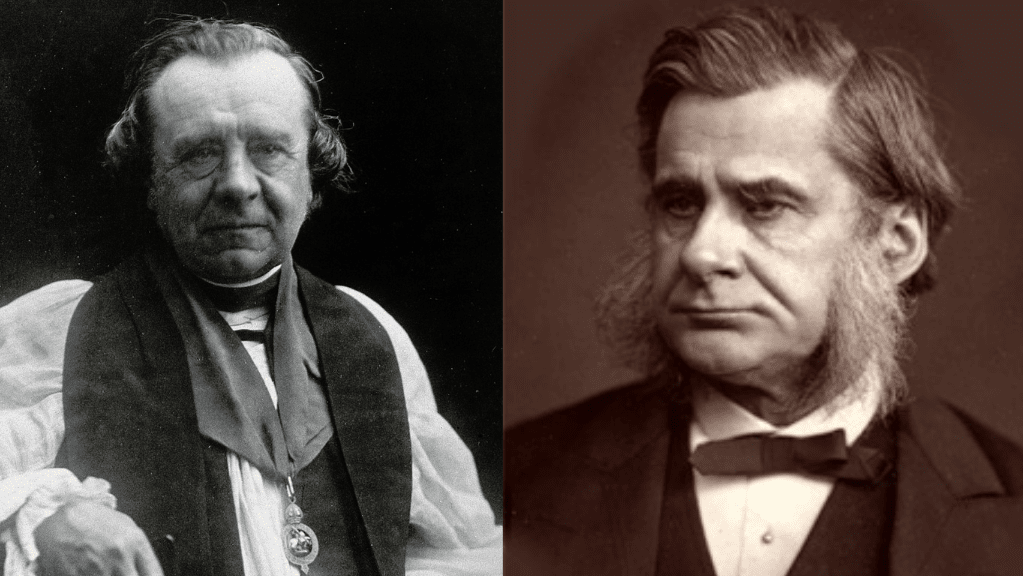
Samuel Wilberforce (left) famously debated T. H. Huxley (right) in 1860
Even then, religion’s use of science did not sharply decline. John George Wood, former Anglican minister, published books advocating the notion that nature was God’s purpose made manifest, often many of which out-sold Darwin’s Origin of Species (Bernard Lightman, 2014). From this, it is easily discernible that science, and in particular Darwin’s theory of evolution by natural selection, didn’t suddenly break through the ‘conflict’ victoriously. Indeed, even today, only 20% of religious/spiritual British civilians have a problem with evolution, 20% of atheists don’t think evolution can explain human consciousness and, although 40% of Americans reject evolution, much of this is down to surveys being binary in nature – believe in God or believe in evolution.
But the trend was clear. The tide had turned. While scientists were once on the backfoot, asking religion for sanction, now the roles were reversed. It was religion that sought sanction from science.
Conclusion
We have arrived back to the present day, the place we started. This is not by any means the whole story; there are many more historical events that contribute to the narrative. However, this all clearly points to the fact that there is an injustice to the historical facts in the popular myth promoted by some atheists. Contrary to the popular belief that scientific progress always emerged in spite of religion, religious groups and religious people in fact contributed significantly to the massive advances that have taken place in recent centuries. Indeed, there is something about religion, especially the broad principles of theism, that has motivated this curiosity to understand nature.
Moreover, while we may disagree with specific religious beliefs of many scientists of past and present, the fact that many scientific pioneers through the ages have seen no issue at all with following both God and science, lends credence to the view that there is no intellectual contradiction between belief in God and holding a scientific outlook. If the most distinguished minds in science can also believe in God, and even assert that God’s existence is apparent from the design of the universe, is it for the ordinary man or woman to assert with such confidence that science ‘disproves’ God?
However, as with many myths, there is a grain of truth to the notion that there is conflict between science and religion. Biblical scripture is at the heart of the problem, and we have demonstrated that many verses of the Bible do contradict science, and reason more broadly. This has serious implications. Whether literal or metaphorical, if the physical descriptions used to elaborate on natural phenomena are not in accordance with well-established science, it brings into question the authorship of that Scripture. Surely a scripture full of errors is more likely to be the product of man rather than God? Rigid and dogmatic adherence to scientifically-erroneous Biblical verses have indeed contributed to modern scepticism of religion in the West.
However, just because Christian concepts and Biblical verses contradict science, it does not mean that religion as a whole is anti-scientific. Theism was the foundation of modern science, and both inspired and guided so many pioneers of the early and late western scientific revolution. Perhaps, therefore, it is time to explore other religions that do not create such a disconnect between scripture and science; between the Word of God and the Work of God.




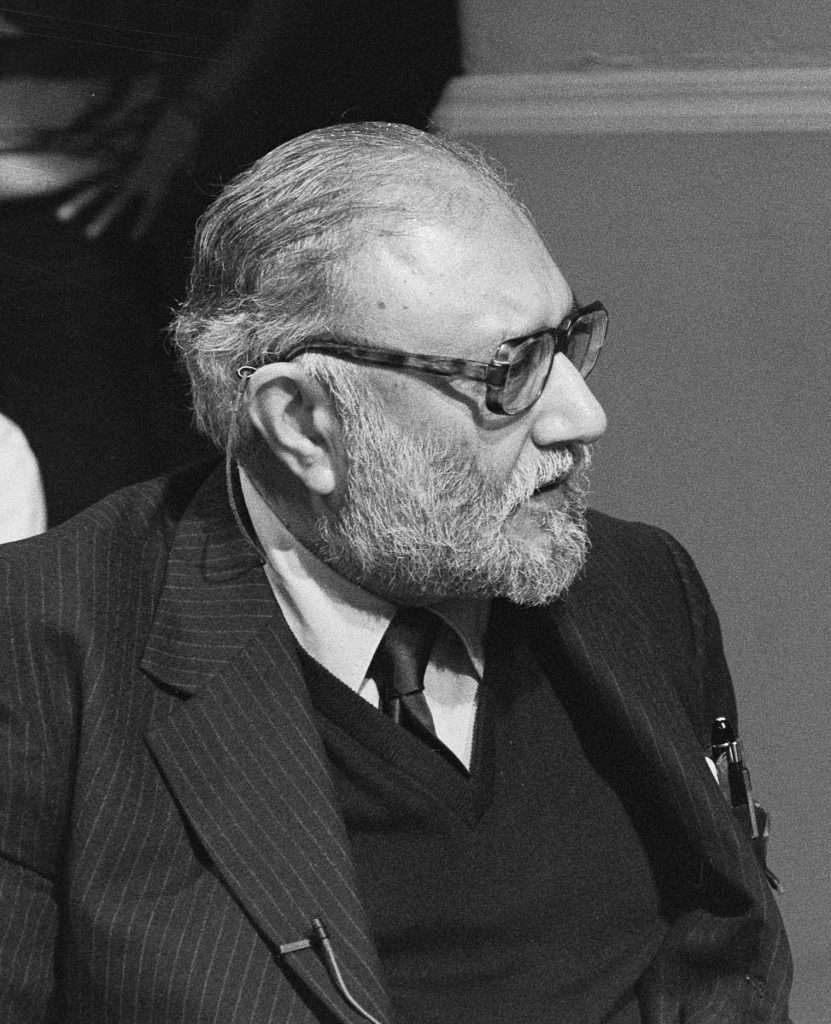
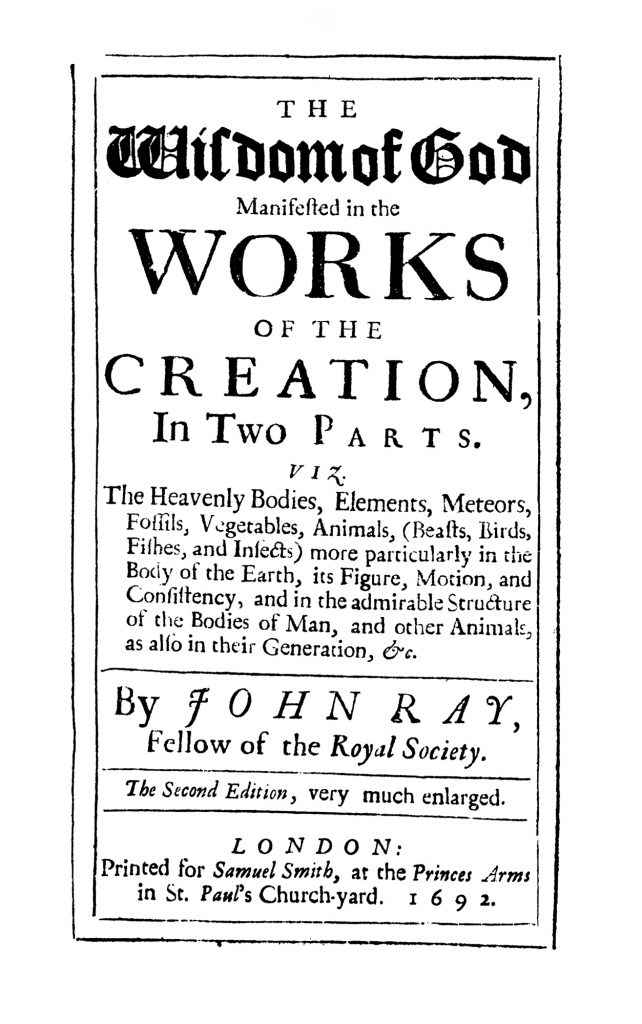

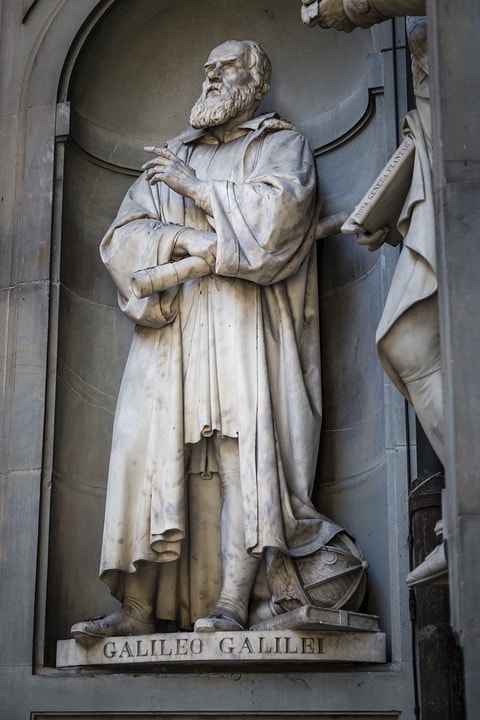






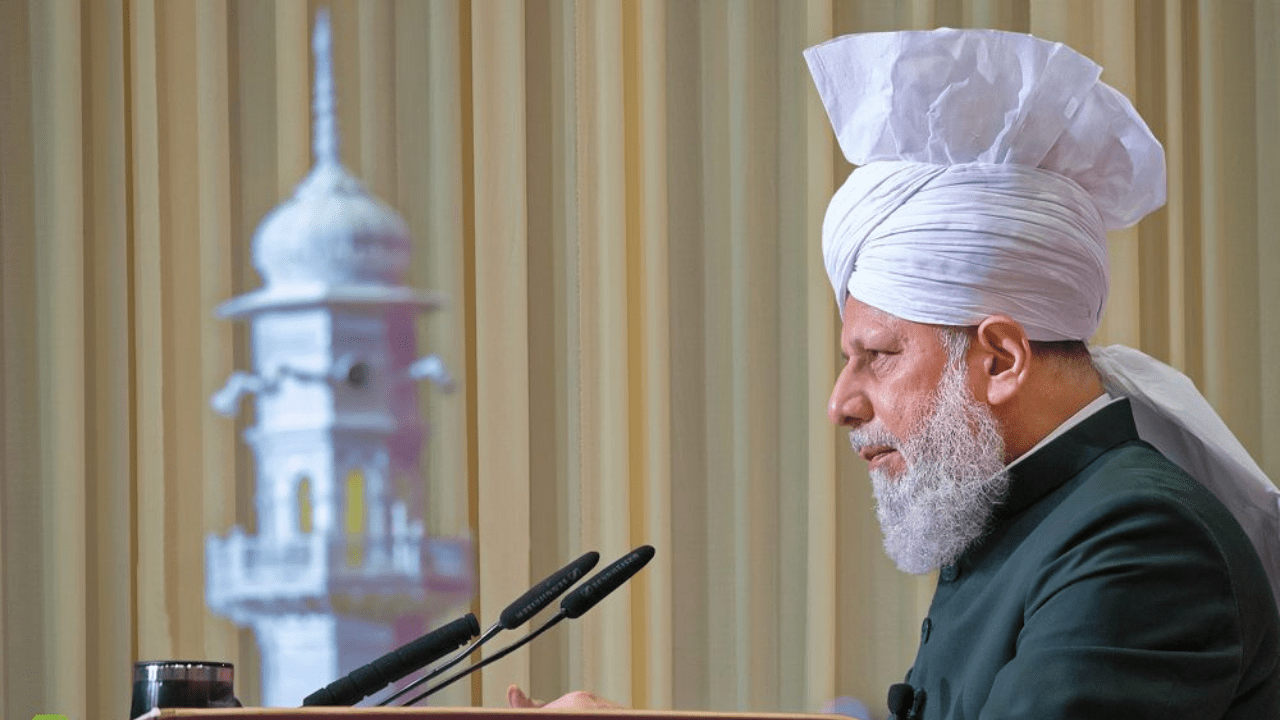
5